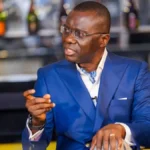
A National Social Welfare Policy that will address present socio-economic challenges facing Nigerians especially, persons with disabilities, victims of wars, children, women and internally displaced and other less privileged is underway, the Minister for Women Affairs and Social Development, Senator Aisha Jummai Al-Hassan has said.
The Minister who made this disclosure at the opening of a two-day meeting to review the draft Social Welfare Policy on Tuesday in Ibadan, noted that this policy was in fulfilment of President Muhammadu Buhari’s efforts in creating conducive environment for sustenance of responsive Social Welfare services in Nigeria.
The meeting was organised by the ministry in partnership with UNICEF.
Jummai Al-Hassan who was represented by the Director of Social Welfare in the ministry, Temitope Bamgboye noted that the major objective of the policy was to review the Draft Social Welfare Policy with a view to enriching it.
At the meeting were Directors of Social Welfare departments and child welfare departments among others from all Southern states in the country.
The Minister noted that a similar meeting for those in the Northern part of the country will soon be held in Kaduna.
Al-Hassan said, "In addition to integral issues such as family, life and destitution among others, the policy is also expected to address emerging issues such as internally displaced persons, violent extremists, child protection etc.
The Minister while addressing journalists, said, "The one we have was developed in 2013, but like I told you, it was just a draft, the document we used was the 1989 Social Development Policy, there are so many developments that have come up, that is why there is a need to develop a current policy that will address present challenges.
"The National Social Welfare Policy is underway, yes it is underway that is why we are meeting, directors from Southern states, we will have another one for the North before we have National Dialogue that will harmonise and accommodate all the views.
"We know that issues that are coming out are different from one place to another, issues like terrorism, kidnapping, extremism, we need to actually empower the practitioners to be able to offer attention.
 Join Daily Trust WhatsApp Community For Quick Access To News and Happenings Around You.
Join Daily Trust WhatsApp Community For Quick Access To News and Happenings Around You.


